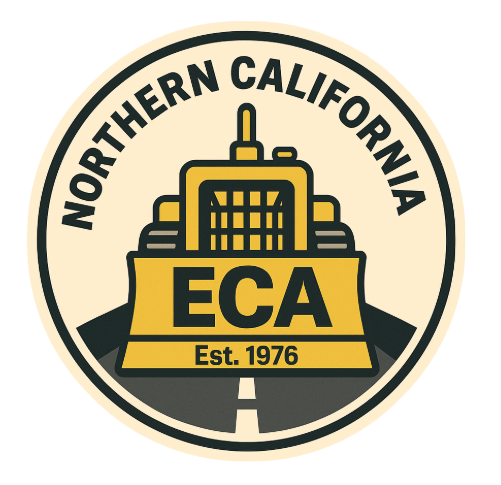WHAT THE ASHBRITT CLASS ACTION MEANS TO YOU
By Ellyn Moscowitz
March 22, 2019
On March 21, 2019, the Press Democrat reported on a class action lawsuit that was brought
against Ashbritt International and Tetra Tech, the engineering and general contractors
responsible for the clean‐up and debris removal of fire afflicted properties in Northern
California. The Federal lawsuit, brought by property owners who lost their homes in the 2017
wildfires, alleges a fraudulent scheme to 1) over‐excavate properties to bill more for removal of
debris; 2) falsifying reports that stated contaminated properties were “safe and
“uncontaminated” and 3) resulted in more expensive engineering costs to rebuild their
damaged properties. The lawsuit was brought under the Racketeering Influenced and Corrupt
Organizations Act (RICO), a law originally created to deal with the influence of the Mafia and
organized crime!
Subcontractors in Sonoma and Napa Counties, who worked with Ashbritt and Tetra Tech, are
understandably nervous about what this lawsuit means to them. The Northern California
Engineering & Contractors Association (NCECA) has asked us to explain 1) what a class action
lawsuit is; 2) how contractors may be implicated in the scheme, and 3) what steps you can take
to protect your company.
Q: What are the specific facts alleged to be unlawful?
Ashbritt and Tetra Tech contracted with the U.S. Army Corp of Engineers (USACE) to test
the soil and remove debris from areas damaged by the fire;
That during their scope of work contractors removed excessive amounts soil, structure,
vegetation or land materials that were not contaminated, to boost the price of the
removal because Defendants were paid by the ton—the more they removed, the more
they were paid;
That Defendants caused damage to or destroyed sidewalks, driveways, wells and septic
tanks;
That Defendants left contaminated materials on the properties and falsely reported the
land was safe;
And that they contracted with subcontractors to be part of this “scheme.”
Q: What is a class action lawsuit?
Individual property owners can collectively bring a lawsuit against Ashbritt and Tetra
Tech when there are so many potential plaintiffs in a case that bringing such cases individually
may be cost prohibitive to the plaintiff and tie up the courts in hundreds of lawsuits. A class
action must be certified by a Judge to proceed as a class action. Here, three individual home
owners brought the suit on behalf of some 14,000 home owners whose property had debris
removed by Ashbritt and Tetra Tech. The potential number of plaintiffs, 14,000 meets the
“numerosity” requirement for class certification. A party seeking a class action must also prove
there are common questions of law and facts so that all issues are worked on together in one
case. Here, the Ashbritt and Tetra Tech may argue that each property has unique characteristics;
that not all properties were damaged, and many had different subcontractors doing the work on
a multitude of properties. The decision about whether this case will proceed as a class action
will not occur until later this year. If the Judge decides against class certification, then each
individual property owner who has a dispute must bring their claims to court individually.
Q: How can subcontractors be brought into the lawsuit?
There are three possible ways contractors who worked with Ashbritt could be brought in: 1)
Ashbritt could “counter sue” the subcontractors who worked with them and allege the
individual contractors working on the land are at fault or were “involved in the scheme”; 2) The
Plaintiffs in this lawsuit could add the contractors in when the names of the subcontractors are
“discovered” under the Doe substitution process or 3) The plaintiffs can bring individual lawsuits
against subcontractors for over‐excavating or tree and vegetation removal;.
Q: Who Might Become Defendants?
If your company contracted with Ashbritt or Tetra Tech over the clean‐up of properties, you
might be brought into the suit. Already, a tree removal service has been sued separately for
removing too many trees as part of the clean‐up. Road companies, excavation contractors, well
or septic companies, electrical contractors and plumbing contractors who did work on the
contaminated properties could also be brought into the suit if you contracted with Ashbritt or
Tetra Tech.
Q: What should I do if I get sued in connection with this case?
Obviously, you should contact your lawyer, or if you don’t have one who can handle these types
of cases, feel free to call our office for help. Not all lawsuits have to be long, protracted or
expensive. It depends on how much of a role your company played in the clean‐up; whether you
acknowledge harm was done and want to enter into a settlement with specific homeowners; or
whether you believe you’ve done nothing wrong and need a strong advocate on your behalf.
To seek advice, please contact me at Smith Dollar at (707) 522‐1100, or email me at emoscowitz@smithdollar.com.
Ellyn Moscowitz, Esq.
Smith Dollar

